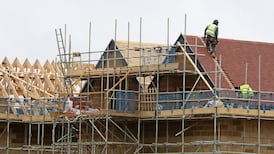The EU and the Mercosur bloc of South American economies hope to finalise a long-delayed trade deal this year, leaders on both sides said, though it remained unclear how officials would resolve significant differences over environmental safeguards.
President Luiz Inácio Lula da Silva of Brazil, the biggest of the four Mercosur members, said on Monday that a “balanced deal” would “open new horizons” – references to Brazil and Argentina’s refusal to accept additional environmental demands and their desire to be allowed to protect domestic industry.
European Commission president Ursula von der Leyen, who has set a year-end deadline to finalise the deal, said it was “within reach” as she met Lula ahead of an EU summit with Latin America and Caribbean (Celac) leaders aimed at rebuilding Europe’s standing in the region. “Our ambition is to settle any remaining differences as soon as possible,” she said.
Diplomats say there is a narrow window to try to finalise the deal in the second half of this year when Spain holds the rotating presidency of the EU Council and before a new Argentinian government takes office in December.
READ MORE
The deal stalled after the EU demanded additional guarantees on deforestation and labour rights in an agreement concluded after 20 years of negotiations in 2019. Mercosur, which consists of Brazil, Argentina, Uruguay and Paraguay, is formulating a counterproposal that will be presented to the EU within weeks, a senior Brazilian diplomat said last week.
Lula has frequently attacked the EU demands, calling them a “threat”. On Monday he made clear that any deal must take account of the interests of both sides. “We want an agreement that preserves the capacity of the parties and that responds to present and future challenges,” he said.
Mercosur leaders view the EU conditions as unacceptable, arguing they have already signed up to relevant international agreements to protect the rainforest and labour standards.
Those countries pushing most strongly for the additional safeguards – France, Ireland and the Netherlands – have large dairy and beef industries that would face lower-cost competition from South America if the deal is ratified.
The Greens in the European Parliament and NGOs say the deal would encourage farmers to clear forests to plant soyabeans or graze cattle to send to Europe. But Jordi Cañas, a Spanish MEP who chairs the European Parliament’s Mercosur delegation, told the Financial Times that Lula’s government should be trusted to protect the Amazon. “He is right. The additional instrument is just a justification to block the agreement for other reasons. If you want to stop deforestation sign the accord. You have more influence to combat deforestation.”
The first EU-Celac summit in eight years was billed as an opportunity to revive Europe’s long-neglected relations with Latin America and the Caribbean. China has grown in the past decade to become South America’s largest trading partner, and the EU is now seeking better access to the region’s abundant raw materials for green technology.
Another key area of tension is the Ukraine war. While Brussels has wanted Latin American and Caribbean governments to criticise Russian aggression some countries are unhappy at how the west has focused on supplying arms instead of pushing for a ceasefire, while others such as Cuba and Venezuela are close allies of Moscow.
Diplomats were struggling on Monday to find common language for a joint communique after the summit on Tuesday. Celac asked to remove a condemnation of Russia’s invasion in the EU’s draft, and tried to add a demand for European reparations for the transatlantic slave trade.
– Copyright The Financial Times Limited 2023
© 2023 The Financial Times Ltd. All rights reserved. Please do not copy and paste FT articles and redistribute by email or post to the web.













